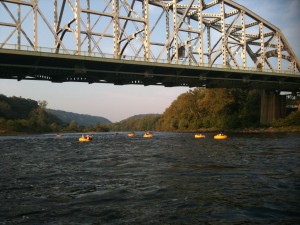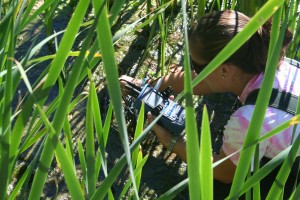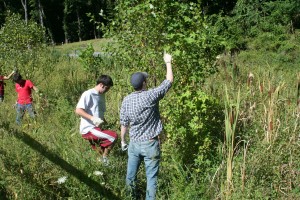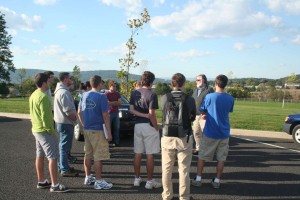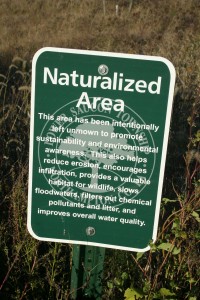Overview
Hydrology is the science of water movement, more specifically quantitative analysis of all aspects of the water cycle: from precipitation to runoff and infiltration, then to groundwater and streamflow, and back to the atmosphere by evaporation and transpiration. This course builds on fundamentals learned in CE 251 Fluid Mechanics and CE 321 Environmental Engineering & Science. We will begin with a review of watershed hydrology and stormwater management concepts, and then cover stormwater runoff mechanisms and modeling, floodplains and flood frequency analysis, and detention routing analysis and design.
This is in part a project-based course. This means that to some degree we will sacrifice the logical organization of a typical lecture-based class for the benefit of doing real-world projects. The class projects typically involve local hydrologic data collection and analysis, field work, computer modeling, and sustainable stormwater design work such as stormwater best management practices (BMPs). The project sites are all within a few miles of campus. Some examples of recent projects:
– Development of Streamgage Rating Curves, Bushkill Creek
– Stormwater Modeling and Conceptual Design, Santee Road/Sunset Drive flood mitigation, Bethlehem Township
– Field Investigation of Losing and Gaining Reaches of Bushkill Creek
– Palmer Park Regional Detention Basin Redesign
– Detention Basin Retrofits – Plainfield Elementary School and Metzgar Fields
– Sullivan Park Stormwater Wetland Monitoring Plan
– Microhydropower Feasibility Report – Easton Wastewater Plant Outfall
– Modeling Multiple Detention Basin Scenarios for the Forks Township/Zucksville Road Watershed
– Hydraulic and Hydrologic Impacts of 3rd Street Dam removal on Bushkill Creek
– Development of a Sustainable Stormwater Management Plan for Lafayette College
– Design of a vegetated swale at Metzgar garden
In addition to the project work, we will explore a variety of topics on current and emerging issues in hydrology through readings, guest lectures, films, and possibly field trips. These topics may include recent changes in stormwater management philosophy and practice, impacts of global climate change on hydrology, case studies, and water resources issues in the Delaware River Basin. You are encouraged to provide current news articles that are relevant to the course and lead a brief class discussion.
Course Syllabus
Intro to Projects
Weekly Schedule
Pics
